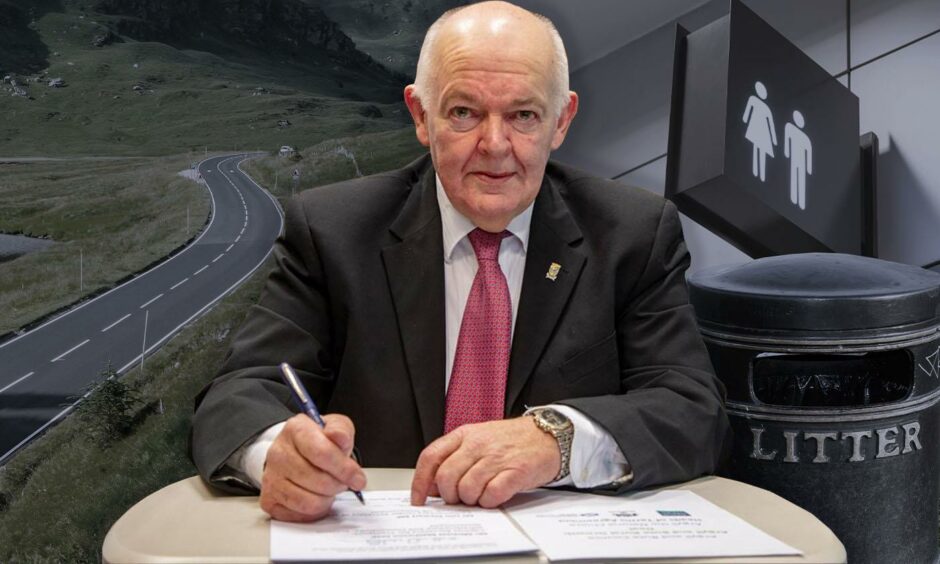Climate change, the economy, and housing are all on the list of priorities Argyll and Bute Council will focus on delivering for the next five years.
At a full meeting of council today, councillors agreed a range of priorities intended to support communities and deliver success for the area as a whole.
In spite of facing a £7 million hole in its finances the council hopes to invest in its future.
Earlier this week the authority said it was giving £120 in Scotland Loves Local vouchers to households on the lowest income.
Focus on people and places
Leader of the council, Robin Currie, said: “We have set out strategic priorities which focus on people and places.
“These priorities are about getting the most from the resources we have, and delivering success for Argyll and Bute.
“To develop them, we considered the diverse needs of our remote, rural and island communities. We listened to what matters to our communities. And we assessed Argyll and Bute’s unique challenges and opportunities.
“Progressing these priorities will help ensure we are investing in the future, and are making our assets work for us right now and in the right ways.”
He added: “The council alone cannot deliver the progress we all want to see for Argyll and Bute. Working together – council, partner agencies, communities and anyone who influences life here – will be key, so our priorities recognise the importance of partnership action for the area’s future success.”
The priorities will be developed in line with Argyll and Bute’s Outcome Improvement Plan – the plan shared by the area’s community planning partners that include health, police, fire, council and other services.
Mr Currie previously wrote to the Scottish Government to ask for support in filling a £7m budget gap in 2022/23 finances.
At the time, he said: “The council’s had to make £64 million of savings over the past 12 years, tens of millions more are forecast as needed in the years to come – communities are steadily losing council services.”
The council’s chief executive Pippa Milne has been tasked with developing an operational plan for how the council will deliver the priorities laid out by councillors.
What does the council plan to do?
Education
Plans will be progressed for a new campus on Mull. Gaelic will continue to be promoted.
There was no discussion of the longed-for Gaelic Medium school in Oban, that parents have been campaigning for.
It plans to take attainment into the “upper quartile” – which would see an improvement on the local authorities current standing with attainment below average for Scotland in the region.
It plans to reduce the number of children and young people who have to travel outwith the area to access services by enhancing provision where gaps currently exist.
Working to improve and secure equity of specialist provision while maintaining the current staffing complement who support this work.
Infrastructure
The council plans to initiate plans for a 20mph speed limit in its towns and villages by working in partnership, and in line with national legislation.
It plans to complete a review of parking and traffic management/enforcement to reshape arrangements that reflect community needs and ambitions.
On top of its agenda is upgrading the council’s harbour infrastructure to ensure it is capable of receiving existing and planned new ferries at Craignure, Fionnphort/Ruahaich, Port Askaig, Dunoon, Kilcreggan and Campbeltown.
The long awaited harbour authority for Oban is high on its agenda, saying it will “ensure proposals are submitted to Scottish ministers as soon as possible following consideration by the Harbour Board in December 2022”.
In the next five years it also seeks funding for the procurement of new council-operated vessels including Islay, Jura, Luing and Easdale.
Housing
It also plans to be more ambitious in home building – promising to support the building of 1,000 homes in the region and looking at support for other schemes for private housing at mid market rents.
It sets out the notion that the council should become a Rural Housing Body – where it would be more directly involved in the delivery of housing or land for housing.



Conversation